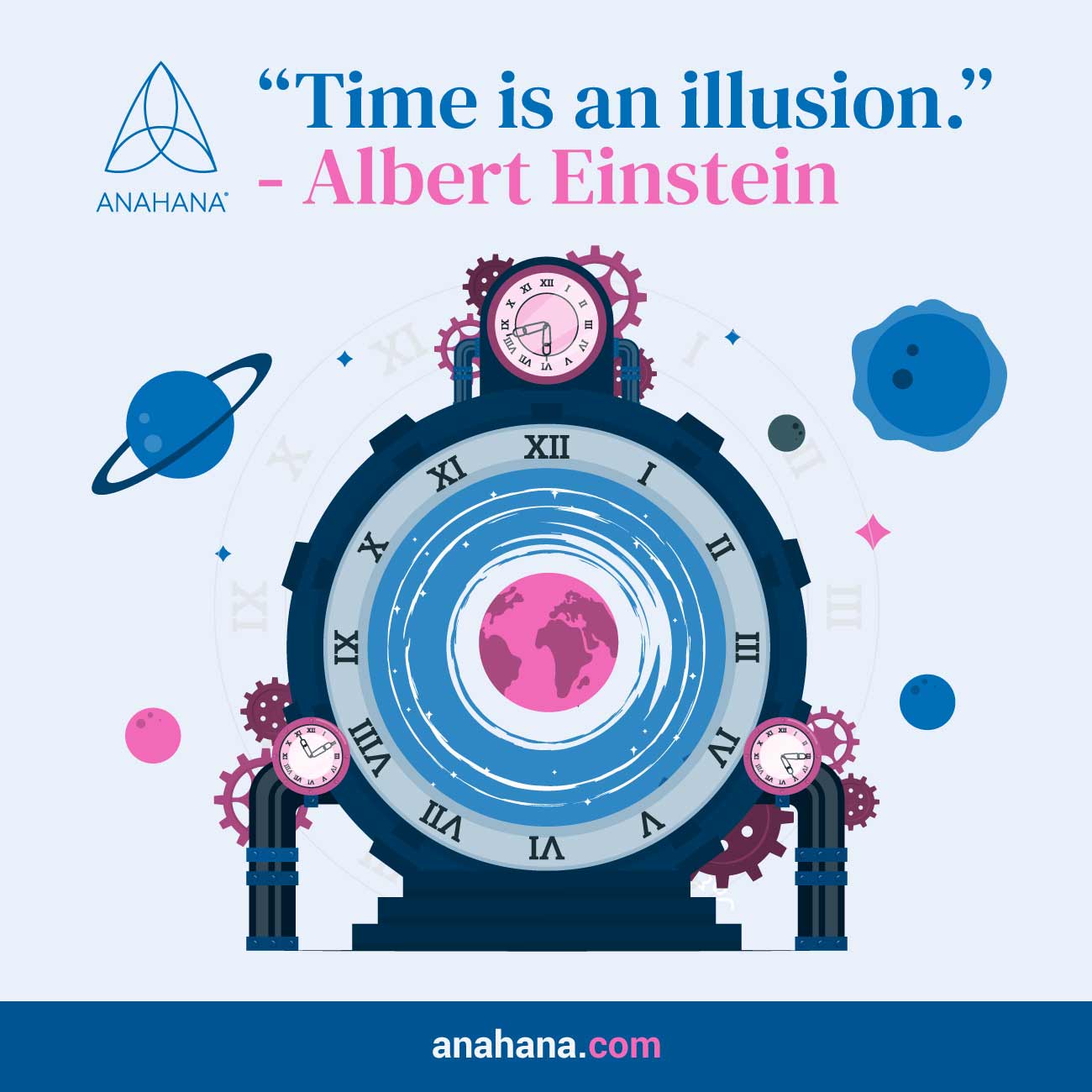
Table of Contents
Explore the fascinating world of relativity, from Einstein's groundbreaking theories to their profound impact on our understanding of the universe.
Law of Relativity Defined
Science meets spirituality through the Law of Relativity. This isn’t just about Einstein's groundbreaking ideas on time and space – it's a gateway to seeing the world in a new light.
Discover how this scientific concept can also be a mirror, reflecting our deep connection with the universe and each other and offering a fresh perspective on the everyday wonders around us.
What is the Law of Relativity?
The Law of Relativity, a cornerstone of modern physics, was primarily developed by Albert Einstein. It revolutionized our understanding of space, time, and gravity. This law is divided into two parts: special relativity and general relativity.
Special relativity, introduced by Einstein in 1905, posits that the laws of physics are the same for all non-accelerating observers, and it introduced the idea that the speed of light within a vacuum is the same no matter the speed at which an observer travels.
As a result, it concluded that time and space are linked to what we now call spacetime.
General relativity Albert Einstein's theory expanded in 1915, further changing our understanding by explaining how massive objects distort spacetime, which is felt as gravity.
This theory of relativity has been proven through countless experiments and astronomical observations, solidifying its role as a fundamental description of the universal gravitational force in the solar system. Einstein's theory has been used to inform understanding of earth's gravitational field, classical mechanics,
“When you are courting a nice girl, an hour seems like a second. When you sit on a red-hot cinder a second seems like an hour. That's relativity.” ― Albert Einstein.
The Law of Relativity Explained

Imagine walking through life with a unique lens, coloring your world in a way that's entirely your own.
This is the essence of the Law of Relativity applied to our daily existence. It suggests that everything around us – every event, interaction, and experience – isn't inherently good or bad, big or small, easy or difficult.
Instead, the meaning and significance of these moments are shaped entirely by our perspective and context.
Similarly, the challenges we face are relative. A problem that seems impossible to one might appear as a minor hurdle to another.
Our past experiences, personal resilience, and current situations all affect how we perceive and tackle these challenges.
This law also teaches us about empathy and understanding. As our experiences are filtered through our unique lens, so are others.
Recognizing this can help us appreciate the diverse perspectives and reactions of people around us, fostering deeper connections and understanding.
How to Apply the Law of Relativity in Daily Life
Embrace Perspective Shifting
When faced with a situation, especially a challenging one, pause and consider it from multiple angles. Ask yourself, "How might someone else view this?"
This practice can help you see beyond your initial reaction, uncovering new ways of understanding and responding to situations. It's a step towards realizing that many ways exist to interpret the same event.
Cultivate Gratitude in the Ordinary
Practice finding value and meaning in everyday experiences. What seems mundane or routine can take on new significance when viewed differently. For instance, a simple family dinner is an opportunity for connection and love rather than just another meal.
Develop Empathy
Acknowledge that everyone's experiences and reactions are relative to their life story. This understanding can deepen your empathy for others.
When someone reacts surprisingly, remember that their perspective is shaped by experiences you may not know about.
Reframe Challenges
When encountering obstacles, use the Law of Relativity to reframe them. Instead of viewing a challenge as a negative event, try to see it as an opportunity for growth or learning. This doesn't mean dismissing the difficulty but viewing it through a lens that empowers you.
Other Methods
- Celebrate Diversity of Thought: Recognize that differing opinions and viewpoints are inevitable and beneficial. The Law of Relativity teaches us that multiple perspectives can coexist and that each one offers valuable insights. Embrace discussions and interactions with those who think differently, as they can broaden your understanding of the world.
- Mindful Decision Making: Before making decisions, especially significant ones, reflect on how your current emotions, biases, and circumstances might influence your choice. Consider waiting until you can view the situation more neutrally, ensuring that your decision is well-rounded and not solely based on a single, potentially skewed perspective.
- Self-Reflection and Growth: Regularly reflect on your experiences and reactions. Ask yourself if your current perspective is serving you well or if there's a more constructive way to view your circumstances. This ongoing self-reflection can lead to significant personal growth and improved mental well-being.
By applying the Law of Relativity in these ways, we can enhance our understanding, relationships, and overall life experience. It's about recognizing that our perspective is just one of many and that we can choose how we perceive and interact with the world around us.
The 12 Laws of the Universe and the Law of Relativity
The 12 Laws of the Universe are a series of principles that are said to govern our lives and the cosmos. These include well-known laws like the Law of Attraction, the Law of Vibration, and the Law of Cause and Effect, among others.
The Law of Relativity, distinct in its scientific foundation, is integrally connected to these principles. It explains how everything is relative, and nothing is absolute.
Understanding these laws can enhance your comprehension of the universe and determine how to navigate life effectively.
- The Law of Divine Oneness: This law signifies that everything in the universe is connected. Our thoughts, actions, and words affect others and the universe.
- The Law of Vibration: Everything in the universe moves and vibrates at a certain frequency. This law highlights that our vibration determines our experiences.
- The Law of Correspondence: This principle posits that patterns repeat throughout the universe, and our outer world reflects our inner world.
- The Law of Attraction: Similar to the Law of Vibration, this law suggests that like attracts like. Positive thoughts and actions attract positive outcomes.
- The Law of Inspired Action: This law emphasizes the need to take proactive steps towards your goals, aligning your actions with your desires.
- The Law of Perpetual Transmutation of Energy: Energy is always in motion and can transform from one form to another, enabling change and growth.
- The Law of Cause and Effect (Karma): Every action has an equal and opposite reaction, underscoring the importance of responsible actions.
- The Law of Compensation: This law relates to the rewards and consequences of our actions.
- The Law of Relativity: This law teaches that everything is relative and that challenges and obstacles are growth opportunities.
- The Law of Polarity: This principle states that everything has an opposite and that opposites are different forms of the same thing.
- The Law of Rhythm: This law states that life is a series of cycles and patterns, and understanding these rhythms can enhance our life experiences.
- The Law of Gender: This law highlights the masculine and feminine energies within all things, contributing to creation and growth.
Takeaway
The Law of Relativity, a cornerstone of theoretical physics, has profound implications that extend far beyond the realms of science. It teaches us that our perspectives and experiences are relative to our frame of reference, encouraging a broader view of the situations we encounter in daily life.
The concept of gravitational time dilation reminds us of the relativity of time itself, challenging our traditional perceptions of a universal, constant experience of time.
The cosmological constant, introduced by Einstein, and the principle that 'matter tells spacetime how to curve; spacetime tells matter how to move' reflect the dynamic relationship between the universe and its contents.
Understanding the Law of Relativity deepens our knowledge of the physical universe. It offers a metaphorical lens to view our personal experiences and challenges, reminding us of the vast, interconnected web of existence in which we all play a part.
Frequently Asked Questions
What is the Law of Relativity's simple explanation?
The Law of Relativity, part of Albert Einstein's general theory, explains how observers in different frames of reference, moving at constant speed relative to each other, can experience time and space differently.
This theory fundamentally changed our understanding of gravity, classical physics, the gravitational field, and quantum mechanics, showing it as an effect of the curvature of spacetime caused by mass.
How are the Law of Relativity and universal gravitation connected in spirituality?
In spirituality, the law of relativity reminds us to view our relationships and experiences as relative and unique, fostering empathy and understanding.
At the same time, universal gravitation symbolizes the unseen forces of love and connection that draw all beings together, promoting unity and mutual support.
Together, they encourage a harmonious balance between appreciating individual perspectives and recognizing our relationships' deep, interconnected nature.
How can I apply the Law of Relativity to my love life?
Applying the theory of relativity to your love life means recognizing that your partner's thoughts, feelings, and actions should be understood in the context of their unique experiences, just as yours are.
This approach fosters empathy and understanding, helping you appreciate the uniqueness of each other's perspectives and fostering a deeper, more compassionate bond.
References
General relativity - Wikipedia
What is Einstein's Theory of Relativity? - Universe Today
What is relativity? Einstein's mind-bending theory explained
What Is The Law of Cause and Effect - 12 Universal Laws Explained - SelfMadeLadies
What is Einstein's Theory of Relativity? - Universe Today
Disclaimer
The contents of this article are provided for informational purposes only and are not intended to substitute for professional medical advice, diagnosis, or treatment. It is always recommended to consult with a qualified healthcare provider before making any health-related changes or if you have any questions or concerns about your health. Anahana is not liable for any errors, omissions, or consequences that may occur from using the information provided.

By: Sydney Garden
Sydney is a skilled writer and editor at Anahana with a diverse educational and professional background. Sydney received her BA (Honors) in Communications from Toronto Metropolitan University and is furthering her education by pursuing her MSc in Human Resource Management at the University of Stirling.
